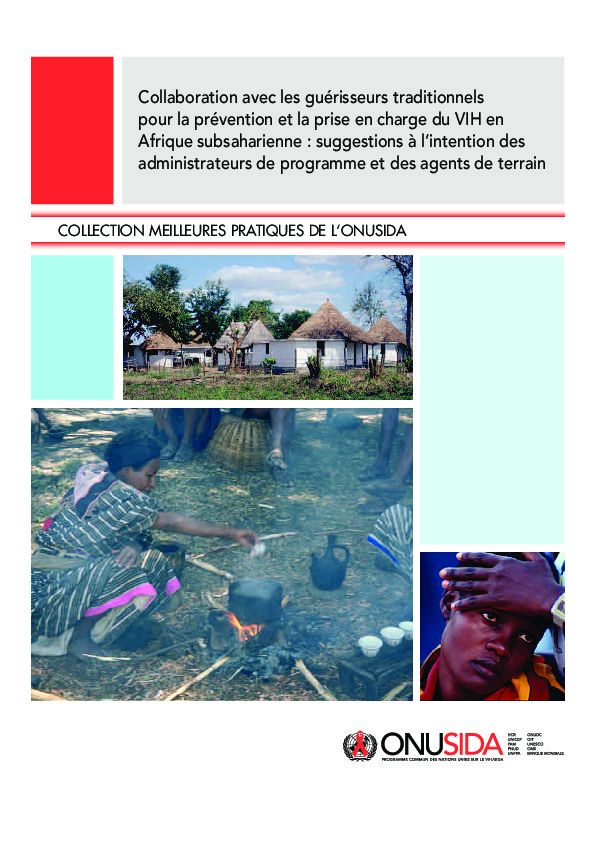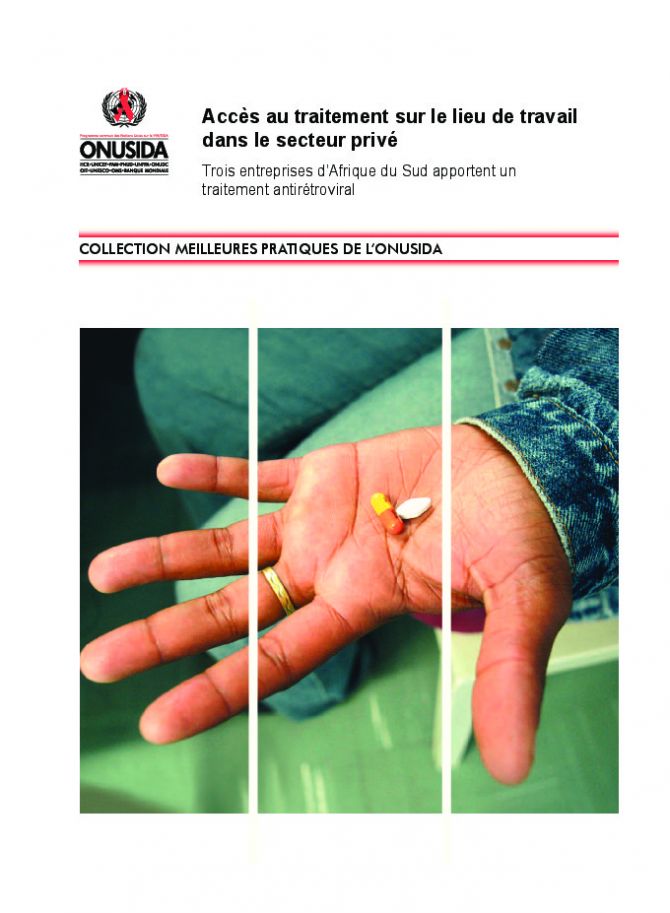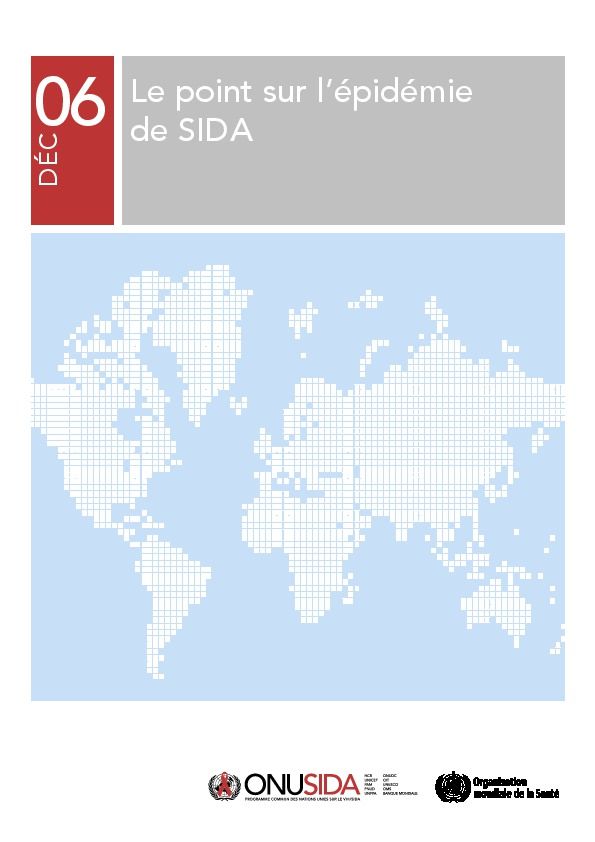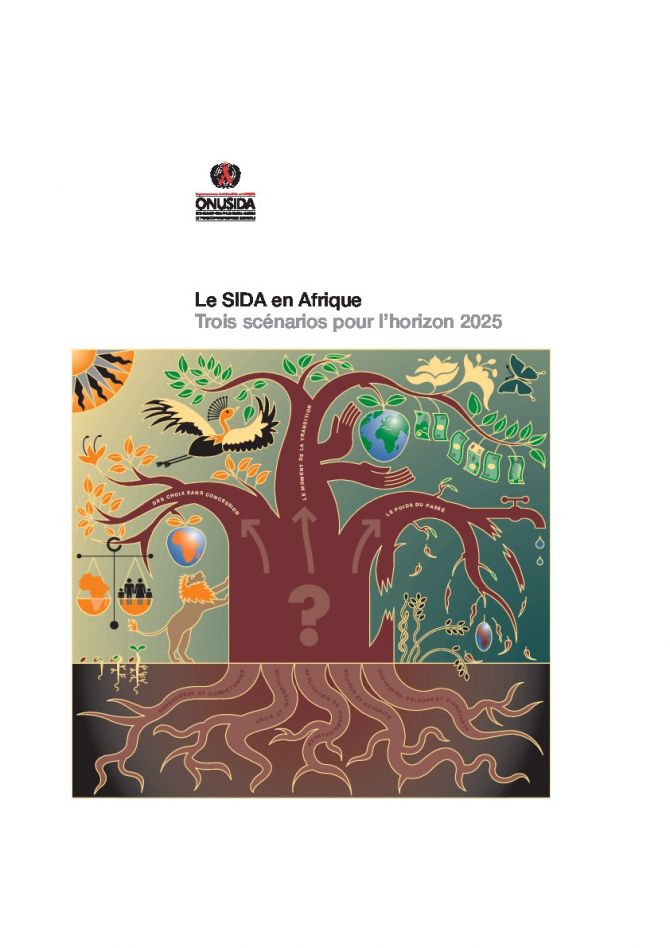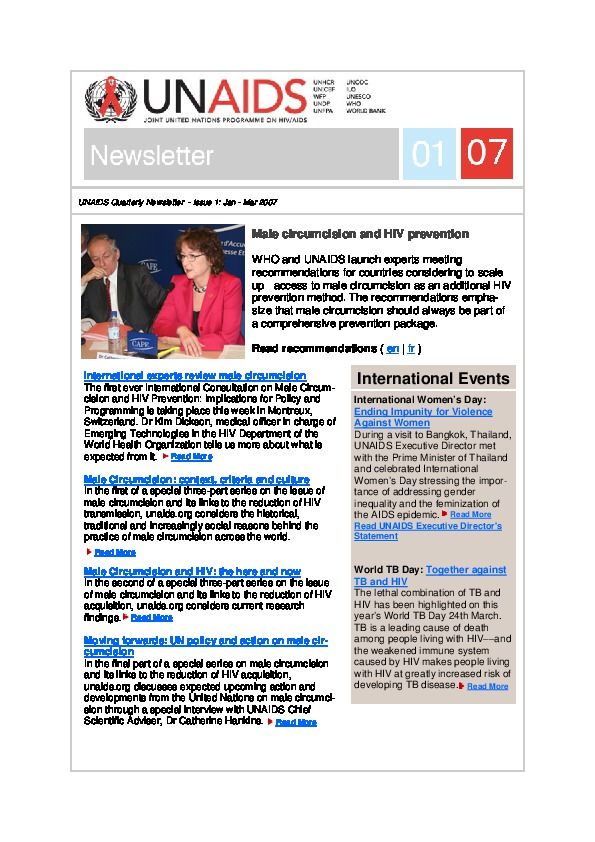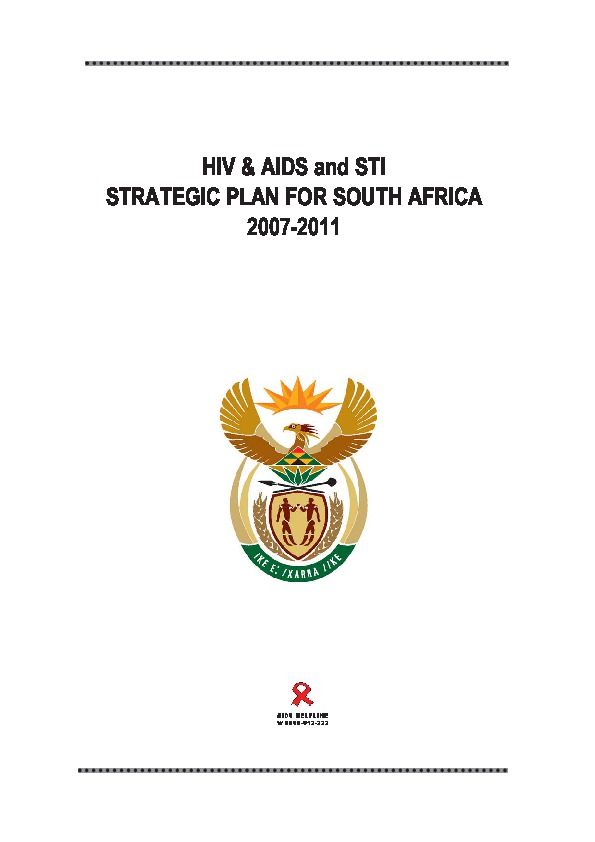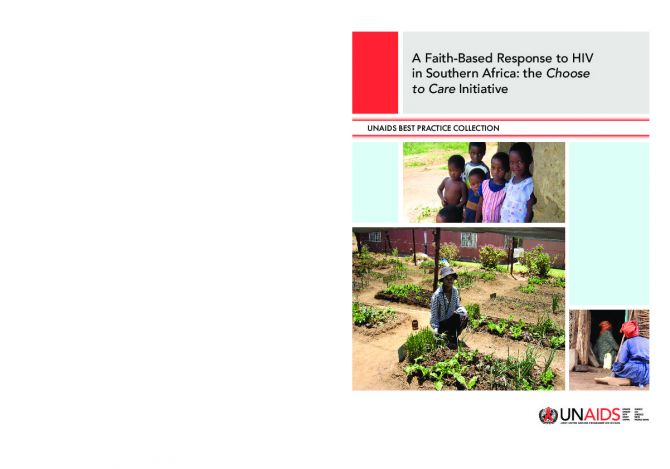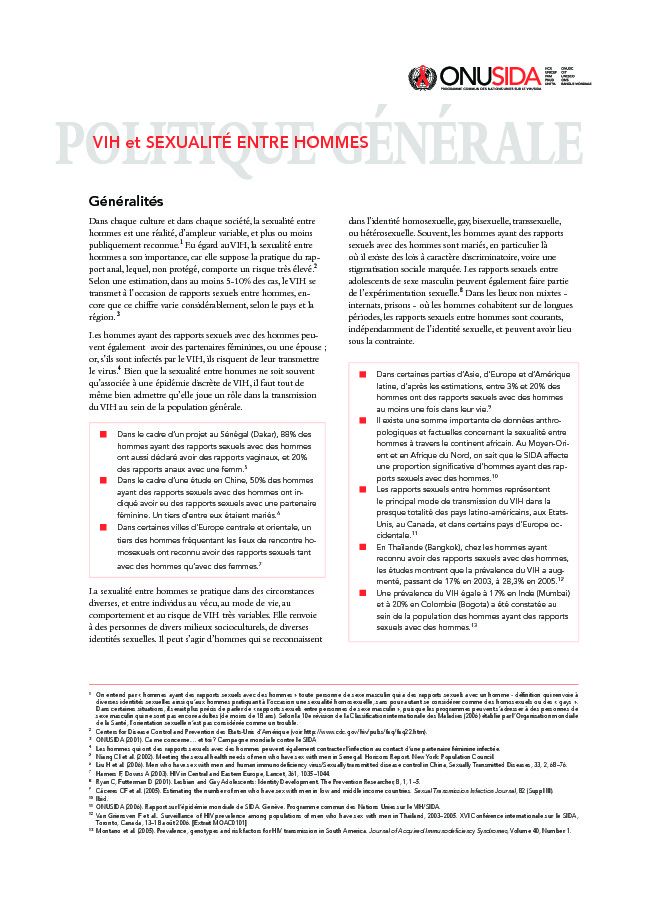Documents
Collaboration avec les guérisseurs traditionnels pour la prévention et la prise en charge du VIH en Afrique subsaharienne: suggestions à l’intention des administrateurs de programme et des agents de terrain
20 octobre 2006
Ce guide est destiné à aider les responsables des pouvoirs publics, les décideurs, les administrateurs de programme, les formateurs et les agents de santé désireux de bâtir des ponts entre les systèmes de santé faisant appel à la médecine traditionnelle et ceux qui reposent sur l’approche biomédicale.
Ce guide se veut au service de la planifi cation, de la conception, de la mise en oeuvre, de l’évaluation et de l’élargissement d’initiatives s’articulant autour d’une collaboration avec les guérisseurs traditionnels dans le domaine de la prévention et de la prise en charge de l’infection à VIH en Afrique subsaharienne. La fi nalité de cet effort est d’améliorer l’accessibilité et la qualité des services de santé que les deux systèmes ont à proposer aux clients.
Documents
Accès au traitement sur le lieu de travail dans le secteur privé : trois entreprises d’Afrique du Sud apportent un
traitement antirétroviral
23 octobre 2006
Le traitement antirétroviral (ART) a un profond impact sur la vie de ceux qui peuvent y accéder. Pour ces personnes, le SIDA est devenu une maladie chronique gérable plutôt qu’une condamnation à mort. Mais pour la plupart des personnes vivant avec le VIH, rien n’a changé parce ni ces personnes ni leur pays ne peuvent payer ces traitements. Le secteur des affaires apporte un rayon d’espoir. Le lieu de travail – privé ou public – offre de nombreuses occasions d’élargir l’accès au traitement à travers des programmes de médecine du travail ou des modalités d’assurance maladie. Un certain nombre d’entreprises
ont acquis de l’expérience dans l’administration d’antirétroviraux à leurs salariés (et dans certains cas également aux personnes à charge). Etant donné l’impact de l’épidémie, les entreprises ont nettement avantage à faire preuve de leur sens de la responsabilité en offrant aux salariés un accès au traitement. Après avoir brièvement discuté les composantes majeures des programmes VIH et SIDA sur le lieu de travail, cette étude de cas décrit trois compagnies sud-africaines qui mettent la thérapie antirétrovirale à la disposition de leurs salariés (Anglo American, BHP Billiton et
Eskom). Le texte décrit en détail les programmes d’entreprise sur la thérapie antirétrovirale et de soins et d’appui, analysant les différences d’approche et les défis que ces entreprises partagent. La contribution du secteur privé au traitement de l’infection à VIH et du SIDA devrait renforcer et non amenuiser le contribution de la santé publique. Les entreprises décrites ici travaillent avec le gouvernement, les communautés et la société civile pour étendre le traitement à l’ensemble du pays grâce à divers programmes et projets, en s’efforçant de donner un exemple d’accès durable au traitement et à la prise en charge.
Documents
Le SIDA en Afrique : trois scénarios pour l’horizon 2025
12 décembre 2006
Ces scénarios font état des solutions possibles. Ils illustrent quelques-uns des principaux choix que le monde doit faire dans les deux prochaines décennies pour répondre à l’épidémie de SIDA en Afrique et décrivent comment l’action menée contre
le VIH et le SIDA pourrait s’inscrire dans un processus de développement durable du continent africain. Ils attirent en outre l’attention sur ce qui pourrait advenir si tous les
projets actuels échouaient à se concrétiser.
Documents
Newsletter v.3.pub
23 avril 2007
The newsletter features information on WHO/UNAIDS recommendations for countries regarding male circumcision and HIV prevention, information on the 7th reference group meeting on HIV and human rights, the new Public Service Announcement (PSA) on AIDS featuring the UNAIDS Special Representative Michael Ballack, and more.
Documents
UNAIDS Quarterly Newletter - Issue 1 : Jan-Mar 2007
23 avril 2007
The newsletter features information on WHO/UNAIDS recommendations for countries regarding male circumcision and HIV prevention, information on the 7th reference group meeting on HIV and human rights, the new Public Service Announcement (PSA) on AIDS featuring the UNAIDS Special Representative Michael Ballack, and more.
Documents
A Faith-Based Response to HIV in Southern Africa: the Choose to Care Initiative
09 janvier 2007
This study describes the work of the Choose to Care initiative of the Catholic Church in Southern Africa. It shows that effective scaling up of programmes in the response to HIV, and work towards making Universal Access a reality, does not necessarily have to be the expansion of a single central service. Through the Choose to Care initiative the Church scaled up service provision by the replication of smaller scale programmes rooted in and responsive to their immediate communities’ needs. The study shows that such an approach is effective when undertaken within common guidelines and given central support.
Documents
Politique générale: VIH et sexualité entre hommes
19 janvier 2007
Dans chaque culture et dans chaque société, la sexualité entre
hommes est une réalité, d’ampleur variable, et plus ou moins
publiquement reconnue. Eu égard au VIH, la sexualité entre
hommes a son importance, car elle suppose la pratique du rapport anal, lequel, non protégé, comporte un risque très élevé. Selon une estimation, dans au moins 5-10% des cas, le VIH se transmet à l’occasion de rapports sexuels entre hommes, encore que ce chiffre varie considérablement, selon le pays et la région.


